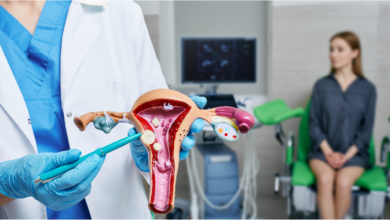
What is a stroke?
A stroke occurs when blood flow to the brain is interrupted or reduced. This can cause brain cells to die, leading to a variety of symptoms and possible disabilities.
What are the symptoms of a stroke?
The acronym FAST is often used to remember the main symptoms of a stroke:
- Face: Does one side of the face droop?
- Arms: Can you raise both arms?
Other symptoms may include:
- Sudden numbness or weakness, especially on one side of the body
- Sudden confusion or trouble understanding things
- Sudden vision problems, such as double vision or blurred vision
- Sudden severe headache with no known cause
Who can suffer a stroke?
Anyone can suffer a stroke, but certain factors increase your risk, such as:
• High blood pressure
• High cholesterol
• Diabetes
• Heart disease
• Smoking
• Family history of stroke or heart disease
• Age (risk increases with age)
• Atrial fibrillation (irregular heartbeat)
What are the types of stroke?
• Ischemic stroke: The most common type, caused by a blockage in a blood vessel leading to the brain.
• Hemorrhagic stroke: Occurs when a blood vessel in the brain ruptures and bleeds.
What diagnostic tests are available for stroke?
• CT scan or MRI: Used to look at the brain and determine the type of stroke.
• Blood tests: To check for blood clotting disorders or other underlying conditions.
• Echocardiogram: To evaluate the health of the heart and detect any possible sources of blood clots.
What is the treatment for stroke?
• Thrombolytic therapy: Used to dissolve blood clots in ischemic stroke.
• Antiplatelet medications: Prevent blood clots from forming.
• Surgery: May be necessary in some cases of hemorrhagic stroke or to restore blood flow to the brain.
• Rehabilitation: To help individuals regain lost functions and improve quality of life.
What diet should I follow?
A healthy diet can help reduce the risk of stroke. It should include:
• Fruits and vegetables
• Whole grains
• Lean protein
• Healthy fats
• Limiting saturated and trans fats
• Reducing sodium intake
Which doctor will treat stroke?
• Neurologist
Can a stroke be fully recovered from?
While some individuals can fully recover from a stroke, others may experience lasting effects. The extent of recovery depends on the severity of the stroke and the person’s overall health.





